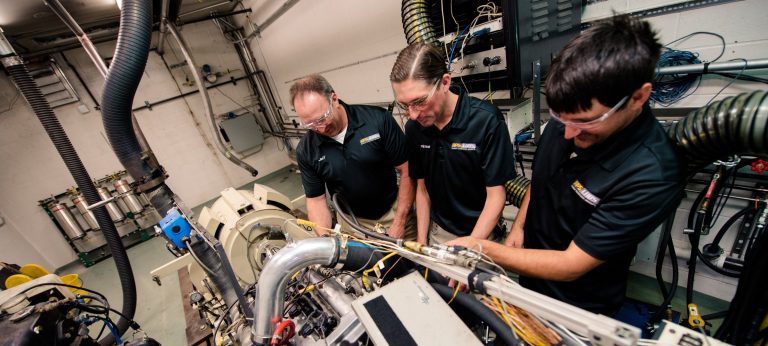Electrical Engineer Jobs In United Kingdom with Visa Sponsorship For Foreigners
The United Kingdom is a global leader in technological innovation and infrastructure development, making it an attractive destination for electrical engineers. With industries ranging from renewable energy and telecommunications to manufacturing and automotive, the demand for skilled electrical engineers is consistently high. Companies in the UK are actively seeking foreign professionals to fill these critical roles, offering visa sponsorship as part of their recruitment strategy.
For aspiring electrical engineers, the UK offers competitive salaries, advanced technological environments, and opportunities to work on groundbreaking projects. This article provides a comprehensive guide to securing electrical engineering jobs in the UK, focusing on skills, salaries, visa options, and where to find opportunities.
Entry-Level Skills and Experience Required For Electrical Engineers In United Kingdom
To succeed as an electrical engineer in the UK, candidates must possess a mix of technical expertise and practical skills. Here’s a breakdown of essential requirements:
- Educational Background:
- A bachelor’s degree in Electrical Engineering or a related field is mandatory. Advanced qualifications, such as a master’s degree, are advantageous.
- Technical Proficiency:
- Knowledge of electrical systems design, maintenance, and troubleshooting.
- Proficiency in using software like MATLAB, AutoCAD Electrical, and PLC programming tools.
- Familiarity with standards like the British Standards (BS) and the International Electrotechnical Commission (IEC).
- Soft Skills:
- Strong analytical and problem-solving abilities.
- Effective communication skills for collaboration and project documentation.
- Time management and adaptability to work under tight deadlines.
- Professional Certification:
- Chartered Engineer (CEng) or Incorporated Engineer (IEng) status is often preferred.
- Certifications in renewable energy systems, power distribution, or smart technologies can enhance your employability.
- Experience:
- Entry-level roles may require internships or 1-2 years of experience in electrical engineering projects, especially in areas like circuit design, power systems, or control engineering.
Regions with the Highest Payment Structures in the United Kingdom
Electrical engineers in the UK earn varying salaries depending on the region. Below are the top-paying regions:
- London:
- Offers the highest salaries due to the presence of major tech firms, energy companies, and financial hubs.
- Aberdeen:
- Known for its oil and gas sector, providing lucrative roles in energy infrastructure and power systems.
- Manchester:
- A growing hub for smart technologies and renewable energy projects.
- Birmingham:
- A major industrial city offering competitive salaries in manufacturing and automation.
- Glasgow:
- A leader in renewable energy, particularly wind and hydroelectric power projects.
Salary Expectations for Foreigners in the United Kingdom
Below is a table summarizing salary expectations for electrical engineers based on experience and specialization:
| Role | Annual Salary (GBP) |
|---|---|
| Entry-Level Electrical Engineer | £28,000 – £35,000 |
| Mid-Level Electrical Engineer | £35,000 – £50,000 |
| Senior Electrical Engineer | £50,000 – £70,000 |
| Power Systems Engineer | £45,000 – £75,000 |
| Renewable Energy Specialist | £50,000 – £80,000 |
Summary: Salaries start at approximately £28,000 for entry-level roles, with significant growth potential as engineers gain experience and specialize in high-demand fields.
Companies Hiring Electrical Engineers in the United Kingdom
Many UK-based companies are actively recruiting electrical engineers and offer visa sponsorship. Here are notable examples:
- National Grid:
- Requirements: Expertise in power transmission, grid systems, and energy distribution.
- Rolls-Royce:
- Requirements: Experience in aerospace or power systems, strong design and analytical skills.
- Siemens UK:
- Requirements: Knowledge of smart technologies, industrial automation, and renewable energy solutions.
- Arup:
- Requirements: Focus on sustainable design and proficiency in electrical system design and analysis.
- EDF Energy:
- Requirements: Specialization in renewable energy systems, power distribution, and maintenance.
Visa Types and Options for Electrical Engineers in the United Kingdom
Foreign electrical engineers can work in the UK using various visa options, including:
- Skilled Worker Visa:
- Enables professionals to work in eligible roles if sponsored by an employer.
- Electrical engineering is listed as a shortage occupation, offering reduced salary thresholds and application fees.
- Global Talent Visa:
- Ideal for highly skilled individuals in engineering and technology fields.
- Does not require employer sponsorship, providing greater flexibility.
- Graduate Visa:
- Available to international students graduating from UK universities, allowing work for up to two years without sponsorship.
- Intra-Company Transfer Visa:
- Suitable for engineers transferring within multinational firms to UK branches.
- Shortage Occupation List:
- Electrical engineering roles on this list offer easier visa application processes.
Where to Find Electrical Engineer Job Opportunities in the United Kingdom
Job seekers can explore multiple platforms to discover opportunities:
- LinkedIn:
- A professional network featuring job listings, industry news, and employer connections.
- Indeed UK:
- Provides extensive job postings, salary insights, and application tips.
- EngineeringJobs.co.uk:
- Focuses exclusively on engineering roles, including electrical engineering.
- Glassdoor:
- Offers job listings alongside company reviews and salary data.
- National Careers Service:
- Provides career guidance and job postings tailored to engineering professionals.
How to Apply for Electrical Engineer Jobs as a Foreigner in the United Kingdom
Follow these steps to secure an electrical engineering role in the UK:
- Evaluate Your Credentials:
- Ensure your qualifications align with UK standards. Consider obtaining UK-recognized certifications if needed.
- Update Your CV:
- Highlight your technical expertise, certifications, and professional experience. Tailor your CV to the job description.
- Prepare a Portfolio:
- Include key projects showcasing your skills in electrical systems, design, and implementation.
- Search for Visa-Sponsoring Employers:
- Research companies known for hiring international candidates and offering visa sponsorship.
- Submit Strong Applications:
- Write personalized cover letters emphasizing your suitability for the role and your enthusiasm for working in the UK.
- Ace Interviews:
- Practice for technical assessments and behavioral questions to demonstrate your expertise and fit.
Conclusion
The United Kingdom is a prime destination for electrical engineers seeking dynamic career opportunities and visa sponsorship. With competitive salaries, a variety of industries, and robust support for international professionals, the UK offers an excellent environment for growth. By understanding job requirements, leveraging available resources, and navigating visa options, foreign engineers can secure rewarding roles and contribute to innovative projects in the UK.







I wish to travel